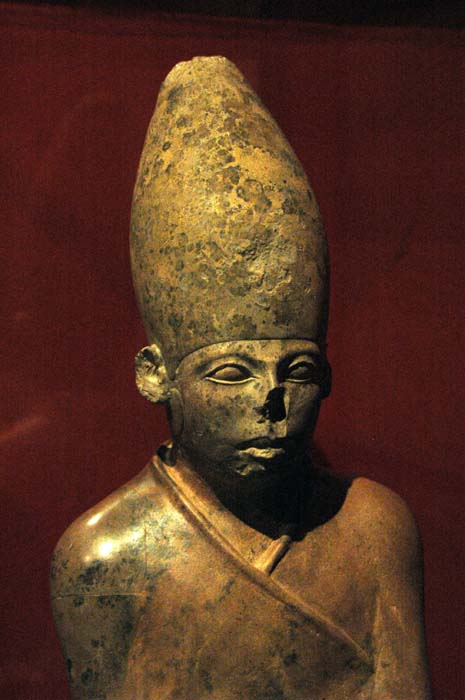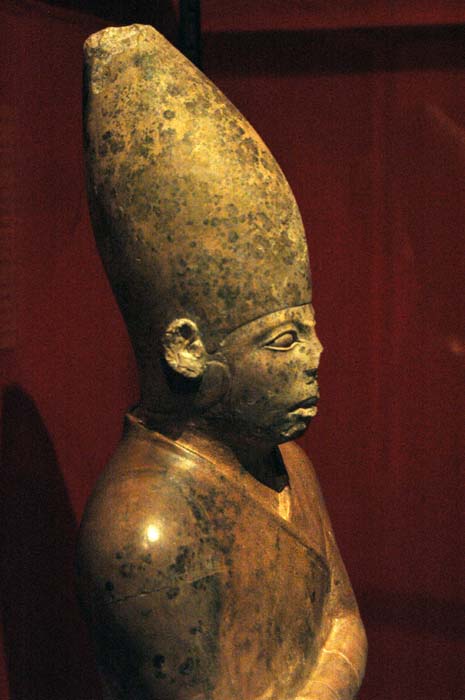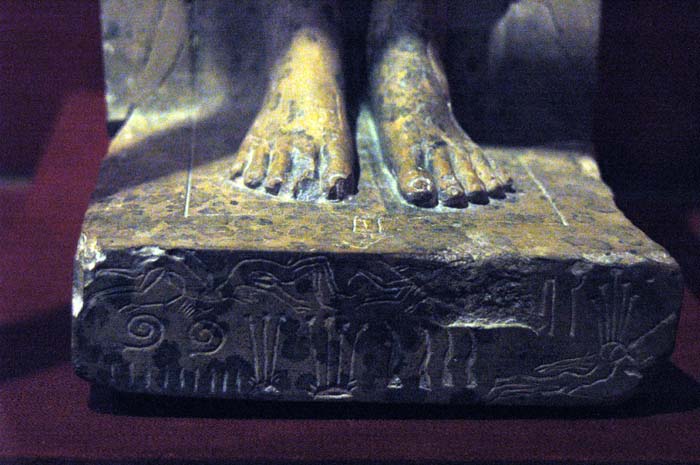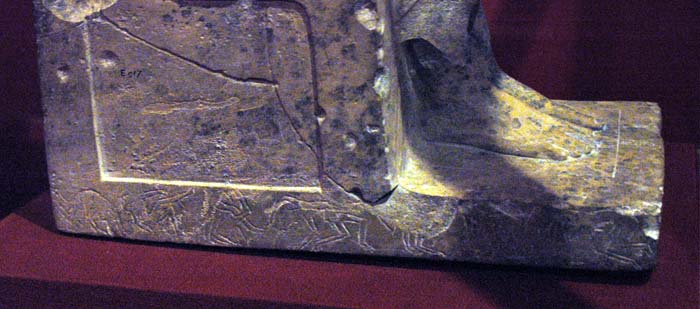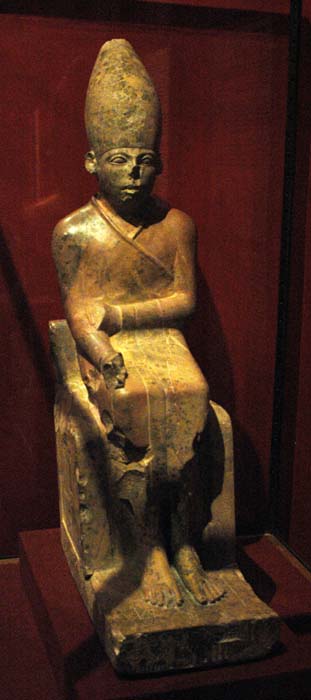 King Khasekhemwy
King Khasekhemwy
Limestone, restored from fragments, Hierakonpolis, temple enclosure, Main
Deposit; 2nd Dynasty 2 about 2890-2686 BC. Found by the Quibell and Green
excavations, 1897-98.
The king is shown enthroned, wearing the White Crown, symbol of Upper Egypt, and
the close-fitting jubilee robe. His right hand is drilled for insertion of a
separate object, probably a flail or sceptre, and his name is scratched on the
base within the early 'palace facade' form of cartouche. This statue, together
with another in green siltstone (now in Cairo), almost identical and also from
Hierakonpolis, is the earliest surviving example of royal sculpture from Egypt.
The base of the statue records a military campaign of the king against the
inhabitants of the Delta, symbolised at the front right by a clump of papyrus
springing from the head of a bound figure being struck by a mace. The rest of
the base is inscribed with the bodies of slain enemies, with the total - 47,209
- given on the front panel.
